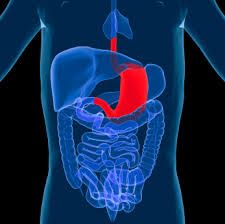Hiatal Hernia
While not always dangerous, large hiatal hernias may cause food and stomach acid to flow back into the esophagus. Some patients require surgery to correct the hernia and relieve heartburn and discomfort. If you are experiencing severe heartburn more than twice a week or if you have other troubling digestive symptoms, please contact Dr. Peyton Berookim for a consultation.

Hiatal Hernia Symptoms
Although small hiatal hernias are frequently asymptomatic, large hernias may cause a great deal of discomfort. Some of the symptoms of a large hiatal hernia include:
- Heartburn and reflux
- Belching
- Trouble swallowing
- Chest pain centered on the sternum
Often, patients with hiatal hernia may only complain of heartburn and are unaware of their condition. Visiting a board-certified gastroenterologist like Dr. Berookim is crucial to diagnosing this condition before it leads to more serious complications, including pain, tissue entrapment, and even Barrett’s esophagus.
Diagnosing Hiatal Hernias
If you are suffering from persistent reflux that is not responding to antacids, Dr. Berookim may perform an upper endoscopy to help diagnose your condition. During an endoscopy, or EGD, Dr. Berookim will insert a slender tube with a light and camera on the end through the throat and into the esophagus and stomach. He can then visually examine the stomach to determine if a hiatal hernia is present. Seeking prompt treatment for a hiatal hernia is the best way to reduce discomfort and prevent more serious conditions affecting the health of the esophagus.
Hiatal Hernia Treatment
In some cases, medication and lifestyle changes are sufficient to treat a hiatal hernia. Dr. Berookim may recommend that patients lose weight and consume a healthy diet with plenty of whole grains and vegetables. Patients with persistent reflux may also want to avoid alcohol, caffeine, acidic and fatty foods, and smoking cigarettes.
If antacids and H2 blockers are not sufficient to relieve your reflux, or if your hiatal hernia is strangulated, you may need surgery to alleviate pain and prevent more serious conditions from developing.
Recovery After Hernia Surgery
Following Dr. Berookim’s instructions is crucial to ensuring a successful recovery after hiatal hernia surgery. While you will be able to resume most normal activities immediately after surgery, Dr. Berookim will instruct you to follow a liquid diet for several days. Although re-injury is possible, patients can minimize their risk factors by maintaining a healthy weight and avoiding certain activities like weight lifting, bending, and straining. Don’t hesitate to contact Dr. Berookim if you experience any of the following symptoms after surgery:
- Fever
- Chest pain or shortness of breath
- Nausea, vomiting, or bloating
- Redness around incision sites
Contact the Gastroenterology Institute of Southern California
A Fellow of the American College of Gastroenterology, Dr. Berookim specializes in conditions affecting the health of the esophagus including GERD, Barrett’s disease, esophageal cancer, and hiatal hernia. He offers a number of state-of-the-art diagnostic procedures including EGD and capsule endoscopy. A revolutionary procedure, capsule endoscopy (also known as the ESO pill procedure) is performed on an outpatient basis and allows Dr. Berookim to visualize the lining of the esophageal tract without the need for sedation. Call 310.271.1122 to schedule an appointment at our brand-new office in Beverly Hills.

